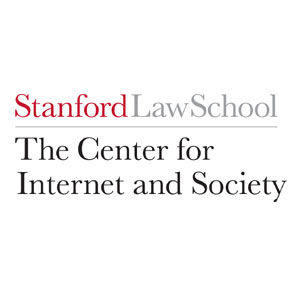
Center for Internet and Society
Stanford Law School Center for Internet and Society
The Center for Internet and Society (CIS) is a public interest technology law and policy program at Stanford Law School that brings together scholars, academics, legislators, students, programmers, security researchers, and scientists to study the interaction of new technologies and the law and to examine how the synergy between the two can either promote or harm public goods like free speech, privacy, public commons, diversity, and scientific inquiry. The CIS strives as well to improve both technology and law, encouraging decision makers to design both as a means to further democratic values.
- 58 minutes 10 secondsShannon Vallor - Hearsay Culture Show #259 - KZSU-FM (Stanford)As you may have noticed (even in the barrage of election coverage), I've been silent since the end of July. The reason is rather simple: since July, I've taught five classes (Contracts, Intellectual Property Survey, two sections of Internet Law, and a new course (for me), Employment Discrimination Law). To do that well, along with being a present husband and father to my two young sons, and maintain forward motion with my scholarship, Hearsay Culture gives way. I don't like that effect, but its unavoidable so long as I continue to do the show gratis (which is not a complaint; its a reality). So, on this momentous and nerve-wracking Election Day afternoon, I'm pleased to post one new show, Show # 259, September 16, my interview with the amazing Prof. Shannon Vallor of Santa Clara University, author of Technology and the Virtues: A Philosophical Guide to a Future Worth Wanting. Shannon has written an exceptionally important and unique work focusing on what personal virtues should guide our integration of new technologies into society. Defining the contours of what she calls "technonormal virtues," Shannon calls on informed citizens to become "moral experts" in a collective effort to create "a future worth wanting" (or, even better, demand for "useful tools that do not debilitate us.") Because Shannon writes about philosophy and virtue as an applicable construct rather than an abstraction, her book should be required reading for anyone seeking better understanding of how we might achieve the best social and moral results from our technological advancements. I very much enjoyed the interview, and hope that you find it valuable and gripping. Indeed, with so much left to discuss, look for part two of the interview in December! {Hearsay Culture is a talk show on KZSU-FM, Stanford, 90.1 FM, hosted by Center for Internet & Society Resident Fellow David S. Levine. The show includes guests and focuses on the intersection of technology and society. How is our world impacted by the great technological changes taking place? Each week, a different sphere is explored. For more information, please go to http://hearsayculture.com.}16 September 2016, 1:00 pm
- 59 minutes 25 secondsPaul Ringel - Hearsay Culture Show #258 - KZSU-FM (Stanford)I'm pleased to post show # 258, June 24, my interview with Prof. Paul Ringel of High Point University, author of Commercializing Childhood. Paul's study may seem superficially beyond Hearsay Culture's scope, until one considers the role of marketing, especially to children, on the Internet. Paul's book frames part of this heretofore-unknown marketing history by focusing on early American efforts to create children's magazines. As a historian, Paul explores the motivations for creating such magazines, as well as their successes. In our interview, we discussed this history and how we might think about today's technologically-enhanced efforts to capture children's eyeballs. I greatly enjoyed this discussion with my friend Paul, and hope that you find it enlightening! Postscript: Look for the Fall 2016 quarter schedule in August, which begins in September 2016. Have a great rest of the summer! {Hearsay Culture is a talk show on KZSU-FM, Stanford, 90.1 FM, hosted by Center for Internet & Society Resident Fellow David S. Levine. The show includes guests and focuses on the intersection of technology and society. How is our world impacted by the great technological changes taking place? Each week, a different sphere is explored. For more information, please go to http://hearsayculture.com.}24 June 2016, 1:00 pm
- 57 minutes 7 secondsNeil Netanel - Hearsay Culture Show #257 - KZSU-FM (Stanford)I'm pleased to post show # 257, June 17, my interview with Prof. Neil Netanel of UCLA Law, author of From Maimonides to Microsoft: The Jewish Law of Copyright Since the Birth of Print. I've had occasion to discuss Jewish intellectual property law in the past, and always seize the opportunity when it arises. Neil offers such an opportunity, as he's written a thoroughly researched and annotated history of the Jewish copyright law and theory. As we discussed, this was a particular challenge since the word "copyright" is largely absent from Jewish writing. Drawing on extensive Jewish law and commentary over centuries, Neil articulates the many facets of Jewish copyright theory that capture elements of modern copyright theoretical bases like personhood and Lockean labor. By examining not just the theory but the types of disputes that arose in Rabbinical courts, as well as the relationship between Jewish jurists and their non-Jewish counterparts, we had a unique and fascinating discussion. Having a prolific and thoughtful scholar on the show is always an honor; thus, I hope that you enjoy this in-depth conversation with one of intellectual property law's scholarly giants! {Hearsay Culture is a talk show on KZSU-FM, Stanford, 90.1 FM, hosted by Center for Internet & Society Resident Fellow David S. Levine. The show includes guests and focuses on the intersection of technology and society. How is our world impacted by the great technological changes taking place? Each week, a different sphere is explored. For more information, please go to http://hearsayculture.com.}17 June 2016, 1:00 pm
- 59 minutes 5 secondsFrancesca Musiani, Derrick Cogburn and Laura DeNardis - Hearsay Culture Show #256 - KZSU-FM (Stanford)It's been a busy summer, having (a) taught an exciting (and sadly timely) new course on Employment Discrimination Law. As a result, Hearsay Culture has taken a bit of a summer hiatus; but, I have a few more shows from the past two months to post. Here's the first, show # 256, May 20, my interview with Francesca Musiani of the French National Centre for Scientific Research, Profs. Derrick L. Cogburn of American University's School of International Service (SIS), and Laura DeNardis of American University's School of Communication, co-editors of The Turn to Infrastructure in Internet Governance. Francesca, Derrick and returning guest Laura, along with co-editor Nanette Levinson, have gathered leading scholars and thinkers on the state of Internet operations. This area is critically important as the Internet moves into governance by international, rather than American, organizations. Particularly given the chaotic state of our public discourse, it is essential for policymakers to understand the various forces that operate to expand and constrain the Internet. In our discussion, we covered a range of topics, from Internet governance politics to whether international bodies can take on this complex task. I greatly enjoyed this wide-ranging discussion! {Hearsay Culture is a talk show on KZSU-FM, Stanford, 90.1 FM, hosted by Center for Internet & Society Resident Fellow David S. Levine. The show includes guests and focuses on the intersection of technology and society. How is our world impacted by the great technological changes taking place? Each week, a different sphere is explored. For more information, please go to http://hearsayculture.com.}20 May 2016, 1:00 pm
- 57 minutes 18 secondsMichael Schudson - Hearsay Culture Show #255 - KZSU-FM (Stanford)I'm pleased to post Show # 255, May 13, my interview with Prof. Michael Schudson of the Columbia School of Journalism, author of The Rise of the Right to Know: Politics and the Culture of Transparency, 1945–1975. Michael is one of the leading media historians writing today, whose many books have helped shape the media studies field. His focus in this work is the mid-century struggle to offer public access to government operations despite the many traditions and practices that pushed against such openness. The post-war era was marked by many ebbs and tides of openness, of which the passing of the Freedom of Information Act (FOIA) was most well-known. In our discussion, we focused on FOIA and other open government laws, its challenges and the impact of this history on our understanding of the Wikileaks-Snowden era. I was thrilled to have Michael on the show, and hope that you find the discussion enlightening. {Hearsay Culture is a talk show on KZSU-FM, Stanford, 90.1 FM, hosted by Center for Internet & Society Resident Fellow David S. Levine. The show includes guests and focuses on the intersection of technology and society. How is our world impacted by the great technological changes taking place? Each week, a different sphere is explored. For more information, please go to http://hearsayculture.com.}13 May 2016, 1:00 pm
- 55 minutes 6 secondsLawrence Lessig - Hearsay Culture Show #254 - KZSU-FM (Stanford)For your Memorial Day weekend, I'm am amazed and humbled to post Hearsay Culture's tenth anniversary show, # 254, recorded on April 26 and aired on KZSU on May 6, 2016, with Prof. Lawrence Lessig of Harvard University, reflecting on the past 10 years of Internet law and policy, and his current efforts to fix democracy. On a day when he was scheduled to fly to Washington, DC to pay a fine for having been arrested on Capitol Hill protesting the state of our campaign finance laws, Larry came to Elon Law and chatted with me for an hour in front of a live audience. Larry and me before the interview! We discussed a range of topics, including Larry's assessment of his role in the Eldred copyright duration decision, his current proposals for addressing the crippling effects of our campaign finance laws on policymaking, his Presidential run, the parallels between the fix democracy movement and civil rights movement, and whether he considers himself an idealist. Along the way, Larry also shared advice both for parents and for aspiring lawyers; advice that has stuck with me, as a law professor with two young sons, since. Suffice to say, I'm grateful for Larry's return to the show, and for taking time out of an unusually busy day to celebrate Hearsay Culture's tenth anniversary! Moreover, I should note that I thank lots of folks and entities during the interview, without whom Hearsay Culture would not be what it is today (starting with my wonderful listeners). I am grateful for your support, encouragement and collegiality, and look forward to another 10 (!) years! Enjoy; I dedicate this show to you! {Hearsay Culture is a talk show on KZSU-FM, Stanford, 90.1 FM, hosted by Center for Internet & Society Resident Fellow David S. Levine. The show includes guests and focuses on the intersection of technology and society. How is our world impacted by the great technological changes taking place? Each week, a different sphere is explored. For more information, please go to http://hearsayculture.com.}6 May 2016, 1:00 pm
- 56 minutes 54 secondsPam Samuelson - Hearsay Culture Show #253 - KZSU-FM (Stanford)I'm pleased to post Show # 253, April 29, my interview with Prof. Pam Samuelson of UC Berkeley School of Law and School of Information, on the Authors Alliance. Pam needs little introduction to Hearsay Culture listeners given her position as one of the leading intellectual property law scholars of the last 30 years. In this interview, we focused on Pam's work for the Authors Alliance, founded by Pam in 2014 to promote "authorship for the public good by supporting authors who write to be read." Given the continued pitched battles around the contours of United States copyright law, the timing of our discussion could not have been better. In a candid and broad interview, we discussed the recent Google Book Search fair use decision, the Authors Alliance's relationship with the Authors Guild, and the role for academics in policy debate, among other topics. I was thrilled to have Pam on the show, and look forward to her future return! {Hearsay Culture is a talk show on KZSU-FM, Stanford, 90.1 FM, hosted by Center for Internet & Society Resident Fellow David S. Levine. The show includes guests and focuses on the intersection of technology and society. How is our world impacted by the great technological changes taking place? Each week, a different sphere is explored. For more information, please go to http://hearsayculture.com.}29 April 2016, 1:00 pm
- 59 minutes 32 secondsBen Peters - Hearsay Culture Show #252 - KZSU-FM (Stanford)Get ready for one of my common (but not yet patented - too abstract?) barrages of new shows over the next few days. That's what weekends are for - catching up on Hearsay Culture postings! So,to quote XTC - appropriately in this insane election cycle and as one bulwark against the ignorance enveloping our political process - let's begin! I'm pleased to post the first of the Spring 2016 shows, Show #252 from April 22, with Prof. Ben Peters of the University of Tulsa, author of How Not to Network a Nation: The Uneasy History of the Soviet Internet. Ben has written a fascinating, exquisitely written and thoroughly researched and contextualized history of the repeated failures over 30+ years to create a Soviet Internet. Not merely a history, Ben's analysis and writing shines when he places the ebbs and tides of its development in the broader socio-political environment in which a few brave pioneers were operating. That the Soviet Internet never developed reveals far more about the nature of a closed but competitive administrative state than it does about the genius underlying failed efforts. In our interview, we discussed both the intuitive and counter-intuitive modern insights borne from Ben's meticulous writing and research. Thanks to Hearsay Culture repeat guest Frank Pasquale for affording the opportunity to meet Ben at Yale Law's extraordinary Unlocking the Black Box conference in April, and I hope that all of you enjoy the interview as much as I did! {Hearsay Culture is a talk show on KZSU-FM, Stanford, 90.1 FM, hosted by Center for Internet & Society Resident Fellow David S. Levine. The show includes guests and focuses on the intersection of technology and society. How is our world impacted by the great technological changes taking place? Each week, a different sphere is explored. For more information, please go to http://hearsayculture.com.}22 April 2016, 1:00 pm
- 58 minutes 55 secondsDave King - Hearsay Culture Show #251 - KZSU-FM (Stanford)I'm posting this show on a Sunday night, with The Jazztet's Another Git Together (Mercury SR-60737, 1962), playing on my turntable. This is an appropriate background — although, as my guest points out in this interview, music listening should be immersive, not merely serve as a backdrop — for posting Show # 251, March 11, my interview with Dave King, drummer for The Bad Plus and host of Rational Funk. While one could dismiss this interview as my effort to parlay Hearsay Culture into a fan exercise, as I'm a big Bad Plus (and an amateur drummer), Dave's development of the video podcast Rational Funk is the clear Hearsay Culture hook. Dave is one of the most successful and acclaimed jazz drummers of the past 20 years, but his work creating Rational Funk and the impact of technology on the jazz world was our focus. In this wide-ranging and candid interview, we discussed the paths to success for jazz musicians today, the production, development and impact of Rational Funk, and even some of Dave's personal reflections on the film Whiplash‘s accuracy. It was a joy to chat with Dave, who took time out of a busy touring schedule to join us on the show, and I hope that you enjoy our discussion! {Hearsay Culture is a talk show on KZSU-FM, Stanford, 90.1 FM, hosted by Center for Internet & Society Resident Fellow David S. Levine. The show includes guests and focuses on the intersection of technology and society. How is our world impacted by the great technological changes taking place? Each week, a different sphere is explored. For more information, please go to http://hearsayculture.com.}10 April 2016, 1:00 pm
- 56 minutes 38 secondsSam Brylawski - Hearsay Culture Show #250 - KZSU-FM (Stanford)I'm honored to post Show # 250 (!), March 4, my interview with Sam Brylawski of the Library of Congress' National Sound Preservation Board, co-author of the ARSC Guide to Audio Preservation. Sam is one of the pioneers of audio sound preservation, and one of its foremost experts, having been the President of the Association of Recorded Sound Collections (ARSC) and editor of the Encyclopedic Discography of Victor Recordings. Sam's work focusing on preserving our collective sound history is extraordinarily important, as this history is at persistent risk of disappearing through degradation of obsolete sound preservation formats, like wax cylinders and metal plates. In our discussion, we focused on the challenges facing our world's sound history, from funding to copyright law. I've known Sam for over 10 years, and this show was long overdue. I hope that you enjoy the show! {Hearsay Culture is a talk show on KZSU-FM, Stanford, 90.1 FM, hosted by Center for Internet & Society Resident Fellow David S. Levine. The show includes guests and focuses on the intersection of technology and society. How is our world impacted by the great technological changes taking place? Each week, a different sphere is explored. For more information, please go to http://hearsayculture.com.}4 March 2016, 1:00 pm
- 55 minutes 19 secondsLorelei Kelly - Hearsay Culture Show #249 - KZSU-FM (Stanford)I'm excited to post Show # 249, February 26, my interview with Lorelei Kelly of the New America Foundation on technology and legislative decision-making. Lorelei has done unique, critical and groundbreaking working focusing on the collapse of substantive expertise within Congress. More recently, Lorelei has been working on how governments can build resiliency into the legislative process in order to be able to operate effectively and proactively in our dynamic society. Thus, e-government, Congress' current state, the challenges of policy-making in today's DC, and her concept of "resilient government" was the focus of our discussion. Lorelei's work deserves significant attention, I'm an unabashed fan, and she's an engaging speaker, so I hope that you enjoy the show! {Hearsay Culture is a talk show on KZSU-FM, Stanford, 90.1 FM, hosted by Center for Internet & Society Resident Fellow David S. Levine. The show includes guests and focuses on the intersection of technology and society. How is our world impacted by the great technological changes taking place? Each week, a different sphere is explored. For more information, please go to http://hearsayculture.com.}26 February 2016, 1:00 pm
- More Episodes? Get the App
Your feedback is valuable to us. Should you encounter any bugs, glitches, lack of functionality or other problems, please email us on [email protected] or join Moon.FM Telegram Group where you can talk directly to the dev team who are happy to answer any queries.
 Berkman Klein Center for Internet and Society: Audio Fishbowl
Berkman Klein Center for Internet and Society: Audio Fishbowl
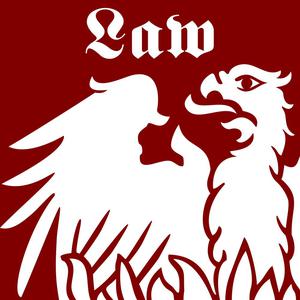 The University of Chicago Law School Faculty Podcast
The University of Chicago Law School Faculty Podcast
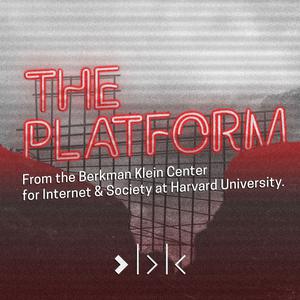 Radio Berkman
Radio Berkman
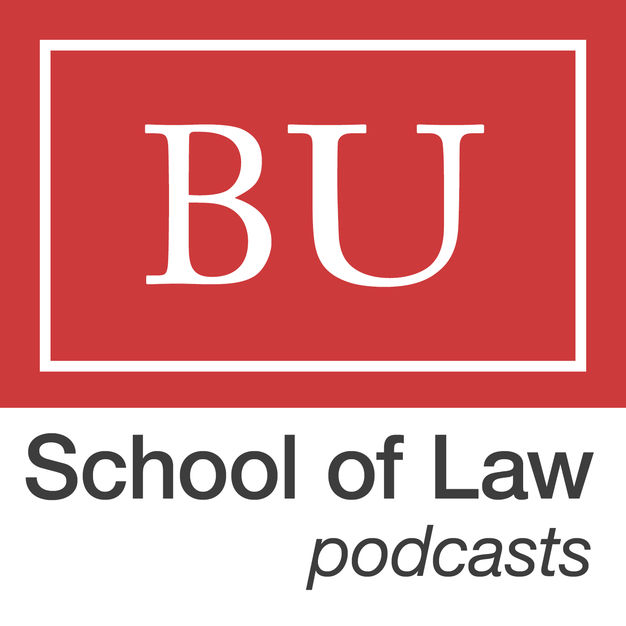 Boston University School of Law
Boston University School of Law
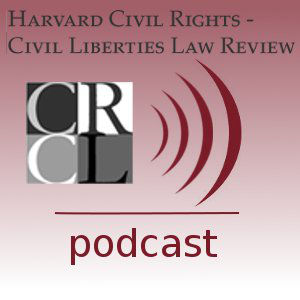 Harvard Civil Rights-Civil Liberties Podcast
Harvard Civil Rights-Civil Liberties Podcast
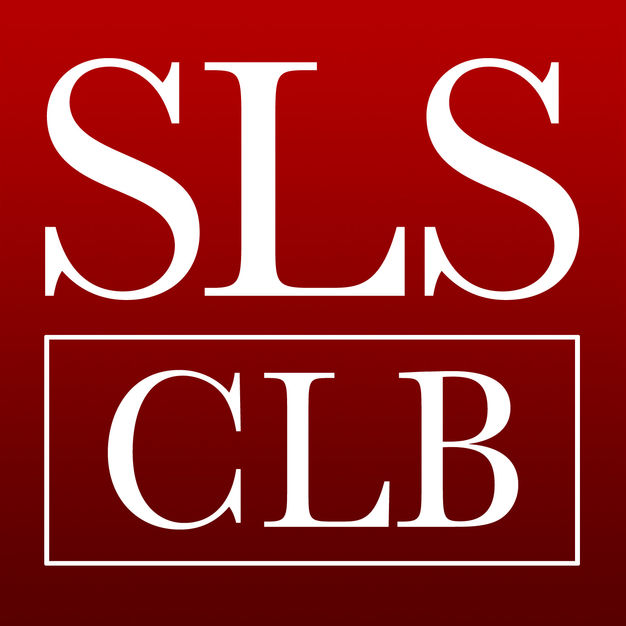 Stanford Center for Law and the Biosciences Podcast Series
Stanford Center for Law and the Biosciences Podcast Series